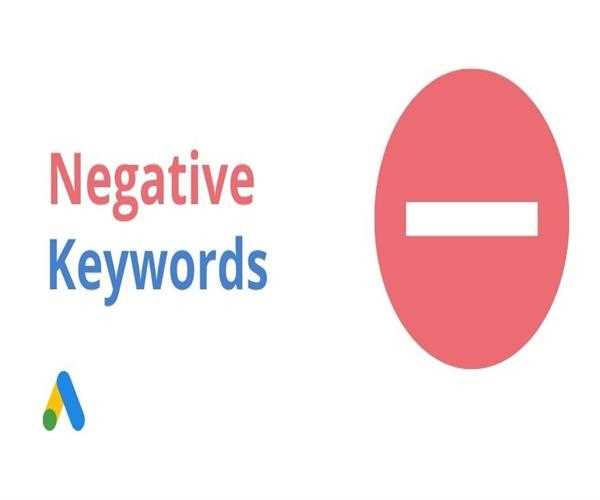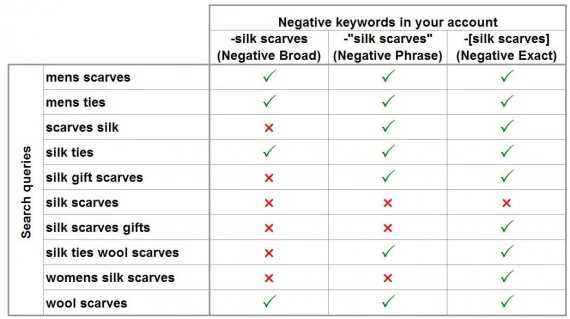
02-Aug-2023 , Updated on 8/2/2023 3:22:32 AM
Negative keywords- What are they and how to use them?
Highlights
- Negative keywords are specific words or phrases that you add to your online advertising campaigns to prevent your ads from showing for irrelevant or undesirable search queries.
- They are essential for optimizing your pay-per-click (PPC) campaigns, as they help you focus your ad spend on the most relevant audience.
- Negative keywords can be applied to various online advertising platforms, including Google Ads, Bing Ads, and others.
- To find negative keywords, analyze your search term reports to identify irrelevant or low-converting search queries that triggered your ads.
- Utilize keyword research tools to identify potential negative keywords that could be detrimental to your campaign performance.
- Be cautious about using broad negative keywords, as they might exclude relevant traffic. Instead, focus on more specific and targeted negative keywords.
- Regularly review and update your negative keyword lists to ensure you're blocking irrelevant search queries effectively.
- Implement negative keyword lists at the campaign level for broader exclusions and at the ad group level for more granular control.
- Avoid overusing negative keywords, as it could lead to unintentionally blocking relevant traffic.
In the world of digital marketing , especially in the realm of pay-per-click (PPC) advertising, keywords play a vital role in attracting relevant traffic to a website. These carefully chosen words or phrases act as the bridge between businesses and their potential customers. However, not all traffic is beneficial, and sometimes, irrelevant clicks can cost money without yielding valuable results. This is where negative keywords come into play.
Let's explore what negative keywords are, why they are essential for PPC campaigns, and how to use them effectively to maximize the return on investment (ROI) and overall campaign success.
Understanding Negative Keywords
In PPC advertising, businesses bid on specific keywords or phrases relevant to their products or services. When users search for those keywords, the business's ad appears on the search engine results page (SERP). However, the term "negative keywords" refers to words or phrases that are not relevant to the business's offerings. By adding these negative keywords to a PPC campaign, advertisers can prevent their ads from showing up in searches that are unlikely to convert into valuable leads or customers.

Image Source: Seer InteractiveThe purpose of negative keywords is to fine-tune the targeting of ads, ensuring they reach the most relevant audience and exclude those who are less likely to convert. By avoiding irrelevant clicks, businesses can optimize their ad spend and improve the overall performance of their PPC campaigns
Why Negative Keywords Matter
Using negative keywords in your PPC campaigns can offer several key benefits:
1. Cost Savings
One of the most significant advantages of negative keywords is their potential to save advertising costs. When ads appear for irrelevant searches, users may click on them out of curiosity or mistake, leading to wasted ad spend. By eliminating these irrelevant clicks, businesses can allocate their budget more efficiently to reach users who are genuinely interested in their products or services.
2. Improved Click-Through Rate (CTR)
Negative keywords can positively impact a campaign's click-through rate (CTR). When ads are displayed to a more targeted audience, the likelihood of users clicking on them increases. A higher CTR not only improves ad relevance but also rewards advertisers with better ad placements and potentially lower costs per click (CPC).
3. Enhanced Quality Score
Search engines like Google use quality scores to determine the ad's relevance and placement on SERPs. By using negative keywords, advertisers can improve the relevance of their ads, which, in turn, can lead to higher quality scores. A better quality score often results in better ad positions and lower CPCs, maximizing the value of each click.
4. Increased Conversion Rates
A more focused and relevant audience can lead to higher conversion rates. When ads are shown to users actively searching for specific products or services, they are more likely to convert into customers. Negative keywords help filter out users who are looking for something unrelated to what the business offers, thereby increasing the chances of converting valuable leads.

Identifying Negative Keywords
To use negative keywords effectively, businesses need to identify which search terms are irrelevant to their offerings. Here are some strategies to help identify negative keywords-
1. Analyzing Search Terms
PPC platforms like Google Ads provide data on the actual search terms that triggered your ads. Reviewing these search terms regularly allows you to spot patterns of irrelevant queries. Look for terms that don't align with your business goals and add them to your negative keyword list.
2. Utilizing Keyword Research Tools
Keyword research tools can be valuable in identifying both positive and negative keywords. These tools provide insights into the search volume and relevance of specific keywords, helping you discover potential negative keywords that you may not have considered.
3. Monitoring Website Analytics
Examine your website analytics to see which search terms are driving traffic but not resulting in meaningful actions (e.g., high bounce rates or low time on site). These terms might be worth adding as negative keywords to your campaign.
4. Competitive Analysis
Keep an eye on your competitors' ads and identify potential negative keywords from their campaigns. While their strategies may not entirely align with yours, this analysis can provide valuable insights into what to avoid in your own campaigns.
Implementing Negative Keywords
Once you've identified negative keywords, it's crucial to implement them correctly within your PPC campaign. Here's how to do it effectively-
1. Google Ads Negative Keyword Lists
In Google Ads, you can create negative keyword lists and apply them to multiple campaigns or ad groups. This approach saves time and ensures consistency across your campaigns.
2. Campaign-Specific Negative Keywords
While using negative keyword lists is efficient, some negative keywords may be more relevant to specific campaigns or ad groups. In such cases, add them directly at the campaign or ad group level to ensure precise targeting.
3. Match Types for Negative Keywords
In Google Ads, negative keywords support match types, just like positive keywords. Broad match negatives (no punctuation), phrase match negatives (enclosed in quotation marks), and exact match negatives (enclosed in brackets) give you control over how your ads are excluded from certain searches.
4. Regular Review and Refinement
PPC campaigns are dynamic, and user search behavior evolves over time. Regularly review your search term reports and website analytics to identify new negative keyword opportunities or update existing ones to reflect changes in your offerings or market trends.
Negative keywords are a powerful tool in PPC advertising, helping businesses refine their ad targeting and avoid wasting resources on irrelevant clicks. By using negative keywords effectively, advertisers can improve the overall performance of their campaigns, lower costs, and increase conversion rates. Regular analysis and optimization of negative keyword lists are crucial to staying relevant in a dynamic digital landscape.

SEO and Content Writer
I am Drishan vig. I used to write blogs, articles, and stories in a way that entices the audience. I assure you that consistency, style, and tone must be met while writing the content. Working with the clients like bfc, varthana, ITC hotels, indusind, mumpa, mollydolly etc. has made me realized that writing content is not enough but doing seo is the first thing for it.
Join Our Newsletter
Subscribe to our newsletter to receive emails about new views posts, releases and updates.
Copyright 2010 - 2026 MindStick Software Pvt. Ltd. All Rights Reserved Privacy Policy | Terms & Conditions | Cookie Policy